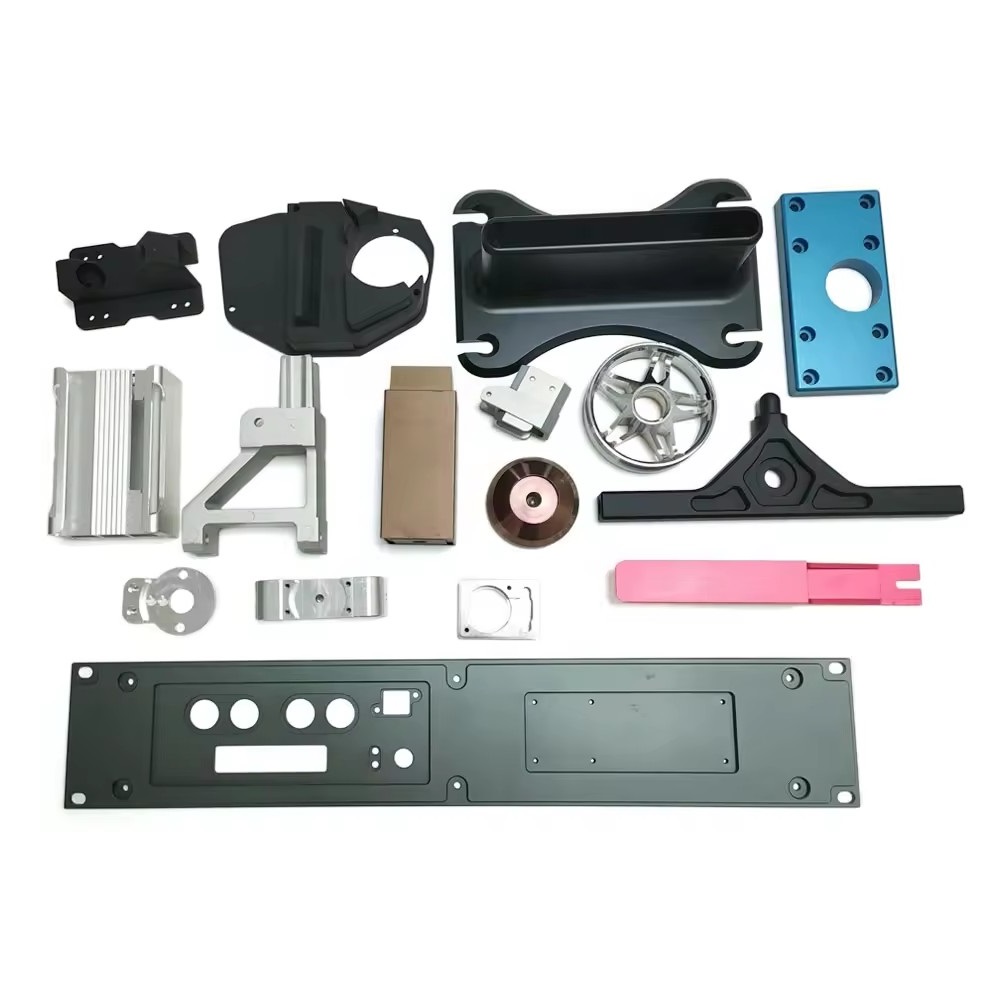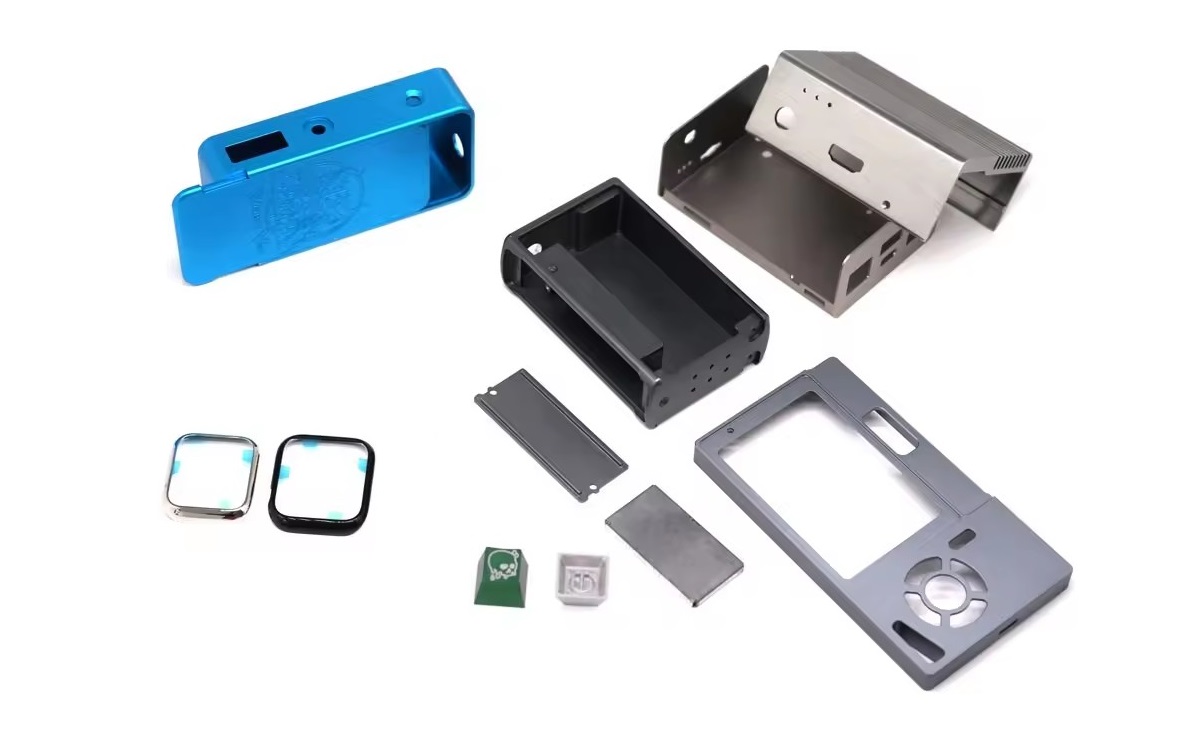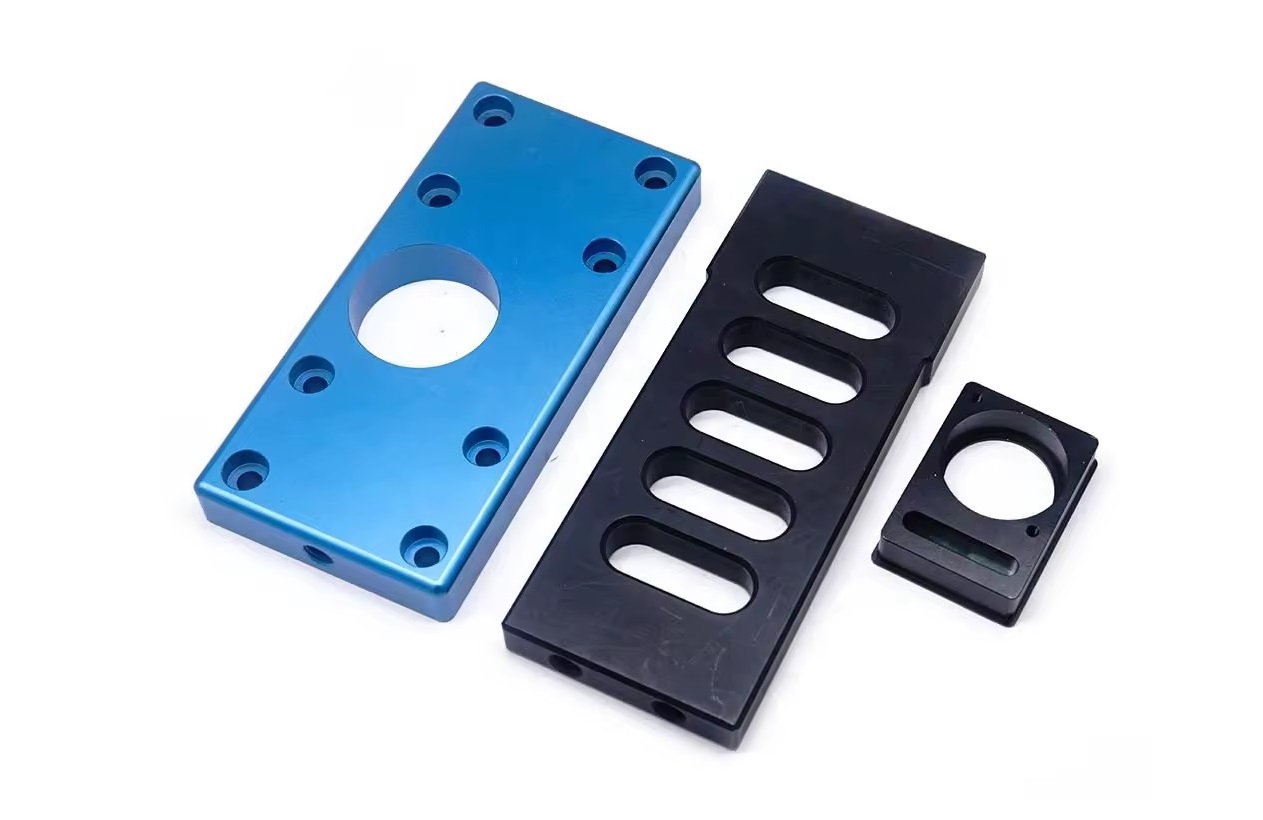3000 Series Aluminum Alloys: Comprehensive Guide
 Aug 10,2024
Aug 10,2024

3000 series aluminum alloys are popular in many industries due to their versatility and reliability. These alloys are known for their corrosion resistance, good workability, and moderate strength. They are used in automotive, construction, and packaging industries. This guide explains the characteristics, forms, and uses of 3000 series aluminum alloys. It is intended for engineers, manufacturers, and designers who want to choose the right material for their projects.
Understanding 3000 Series Aluminum Alloys
What Are 3000 Series Aluminum Alloys?
3000 series aluminum alloys are made with manganese as the main alloying element. Manganese content is usually between 1% and 1.5%. These alloys are non-heat-treatable and are known for moderate strength, good workability, and excellent corrosion resistance. They are widely used in industries where durability and resistance to harsh environments are important.

Key Properties of 3000 Series Alloys
Strength and Durability
3000 series alloys are not as strong as 2000 or 7000 series, but they offer a good balance of strength and flexibility. They can be easily shaped and bent without breaking.
Corrosion Resistance
These alloys have excellent corrosion resistance, especially in marine and industrial environments. This makes them suitable for applications where they will be exposed to moisture or chemicals.
Workability and Formability
3000 series alloys are highly workable and can be easily formed into various shapes. This makes them ideal for creating complex parts.
Non-Heat-Treatable Nature
3000 series aluminum alloys cannot be strengthened by heat treatment. Instead, they are strengthened by cold working, which involves mechanically deforming the material to improve its properties.
Comparison with Other Aluminum Series
1000 Series vs. 3000 Series
1000 series aluminum is almost pure aluminum and offers excellent corrosion resistance, but it is not as strong as the 3000 series. The addition of manganese in the 3000 series improves its strength and makes it more versatile.
2000 Series vs. 3000 Series
2000 series aluminum, which contains copper, is stronger than the 3000 series but has less corrosion resistance. The 3000 series is more balanced, offering moderate strength and good corrosion resistance.
5000 Series vs. 3000 Series
5000 series aluminum, which is alloyed with magnesium, offers higher strength and better corrosion resistance than the 3000 series. However, the 3000 series is easier to work with and more cost-effective for some applications.

Forms and Variants of 3000 Series Aluminum
Common Forms Available
3000 series aluminum alloys come in different forms to suit various manufacturing needs:
- Sheets: Commonly used in automotive and construction applications.
- Coils: Ideal for mass production, especially in packaging.
- Tubes: Used in heat exchangers and fluid systems.
- Wires: Used in electrical and structural applications.
- Custom Profiles: Made for specific industrial uses.
Popular Alloy Variants
3003 Alloy
3003 is one of the most used alloys in the 3000 series. It contains about 1.2% manganese and has good corrosion resistance and workability. It is used in roofing sheets, chemical equipment, and cooking utensils.
3004 Alloy
3004 alloy has higher strength than 3003 due to its additional magnesium content. It is widely used for beverage cans and siding materials.
3005 Alloy
3005 alloy contains more manganese than 3003, giving it better strength. It is often used in residential siding, storage tanks, and marine applications.
3102 Alloy
3102 alloy is used in applications requiring excellent corrosion resistance and moderate strength, such as heat exchangers and air conditioning systems.
3105 Alloy
3105 alloy is similar to 3003 but offers improved strength. It is used in building products like roofing sheets and gutters.
Wire Variants and Finishes
Wire Shapes
3000 series aluminum wires come in various shapes, including flat, round, and custom profiles. These wires are used in structural reinforcement and electrical wiring.
Available Finishes
To enhance appearance and durability, these wires can be finished in different ways:
- Bright Finish: Provides a reflective, polished surface.
- Matte Finish: Offers a non-reflective, textured surface.
- Custom Coatings: Includes anodizing, painting, or other surface treatments.
Applications of 3000 Series Aluminum Alloys
Industry Applications
Automotive Industry
3000 series aluminum alloys are used in heat exchangers, body panels, and fuel tanks in the automotive industry. Their corrosion resistance and lightweight properties help improve fuel efficiency and durability.
Electronics Industry
In the electronics industry, these alloys are used for enclosures and heat sinks, where good thermal conductivity and corrosion resistance are needed.
Food and Beverage Packaging
3000 series aluminum is widely used in the packaging industry, especially for beverage cans and food containers. These alloys are non-toxic, corrosion-resistant, and easy to form.
Construction Materials
In construction, 3000 series aluminum is used for roofing, siding, and insulation. It withstands environmental factors and is easy to install.
Industrial Insulation
These alloys are used for industrial insulation because they resist corrosion and maintain strength in harsh environments.
Heat Exchangers
The good thermal conductivity and corrosion resistance of 3000 series alloys make them ideal for heat exchangers in HVAC systems and other industrial applications.
Specific Product Uses
Roofing and Siding Materials
3000 series aluminum alloys are commonly used in roofing and siding due to their corrosion resistance and durability. They provide long-lasting protection against the elements.
Cans and Containers
The food and beverage industry uses 3000 series alloys, especially 3004 and 3003, for making cans and containers. These alloys are easy to form and ensure product safety.
Gutters and Downspouts
Alloys like 3105 are often used in gutters and downspouts because they are easy to fabricate and resist corrosion.
Chemical Equipment
Due to their resistance to corrosive chemicals, 3000 series alloys are widely used in chemical processing equipment.
Technical Specifications
Chemical Composition
| Alloy | Aluminum (Al) | Manganese (Mn) | Magnesium (Mg) | Others (Fe, Si, Cu, Zn, etc.) |
|---|---|---|---|---|
| 3003 | 96.7% | 1.2% | 0.05-0.20% | 2.05% |
| 3004 | 97.9% | 1.0% | 0.8-1.3% | 0.3% |
| 3005 | 97.1% | 1.2% | 0.2-0.6% | 1.1% |
| 3102 | 98.8% | 0.3% | 0.10% | 0.8% |
| 3105 | 97.5% | 1.2% | 0.2-0.8% | 1.3% |
Mechanical Properties
| Alloy | Tensile Strength (MPa) | Yield Strength (MPa) | Elongation (%) | Temper |
|---|---|---|---|---|
| 3003 | 130-185 | 55-140 | 20-30 | O, H14, H18 |
| 3004 | 160-205 | 150 | 10-20 | O, H34, H36 |
| 3005 | 150-200 | 125 | 12-20 | O, H32, H34 |
| 3102 | 130-170 | 85-110 | 20-30 | O, H12, H14 |
| 3105 | 140-185 | 110-150 | 10-20 | O, H14, H24 |
Physical Properties
| Property | 3003 Alloy | 3004 Alloy | 3005 Alloy | 3102 Alloy | 3105 Alloy |
|---|---|---|---|---|---|
| Density (g/cm³) | 2.73 | 2.73 | 2.73 | 2.73 | 2.73 |
| Thermal Conductivity | 160 W/m·K | 160 W/m·K | 160 W/m·K | 160 W/m·K | 160 W/m·K |
| Electrical Conductivity | 36% IACS | 36% IACS | 36% IACS | 36% IACS | 36% IACS |
| Melting Point | 655°C | 645°C | 650°C | 660°C | 650°C |
Corrosion Resistance
3000 series aluminum alloys have strong corrosion resistance in various environments:
- Marine: These alloys perform well in marine environments, making them suitable for shipbuilding and offshore structures.
- Industrial: Their resistance to industrial pollutants and chemicals makes them ideal for processing equipment and building materials.
- Outdoor Exposure: These alloys resist long-term weathering, making them good for roofing and siding.
Additional Properties
Weldability
3000 series alloys are easy to weld using common methods like TIG and MIG welding. It is important to use the correct filler materials to avoid cracking.
Machinability
These alloys have good machinability, although they are harder to machine than pure aluminum due to the presence of manganese.
Finishing Options
3000 series aluminum alloys can be anodized for better corrosion resistance and appearance. They also accept painting and other surface treatments well.
Processing and Treatment
Cold Working
Cold working is a method to increase the strength of 3000 series aluminum alloys. Processes like rolling, drawing, and bending apply mechanical deformation, making the material harder and stronger.
Heat Treatment
3000 series aluminum alloys cannot be strengthened by heat treatment. Instead, cold working is used to enhance their properties. While this makes them easier to process, it limits options for further strengthening.
Welding
These alloys are weldable using common techniques. Careful control of heat input during welding is needed to avoid distortion and ensure a strong joint. Filler materials from the 4000 or 5000 series are often used.

Selecting the Right 3000 Series Alloy for Your Project
Factors to Consider
When selecting a 3000 series aluminum alloy, consider these factors:
- Strength Requirements: Choose an alloy that meets the strength demands of your project.
- Corrosion Resistance Needs: Consider the environment where the alloy will be used.
- Formability and Ease of Fabrication: Select an alloy that is easy to shape and process.
- Cost Considerations: Balance the cost with the performance benefits.
Comparing 3000 Series Alloys for Specific Applications
For example, 3003 alloy is ideal for applications where corrosion resistance and formability are important, such as food and beverage containers. On the other hand, 3004 alloy might be better for applications that require slightly higher strength, like siding materials.
Getting Started: How to Purchase 3000 Series Aluminum Alloys
Finding the Right Supplier
Look for suppliers with a good track record of delivering high-quality aluminum alloys. Consider these factors:
- Certifications: Make sure the supplier meets industry standards like ASTM or ISO.
- Quality Control: Check their quality control processes to ensure consistent material quality.
- Customer Support: Choose a supplier that offers technical support and customization options.
Requesting a Quote
When requesting a quote, provide these details:
- Alloy Type: Specify the alloy variant (e.g., 3003, 3004).
- Quantity: Indicate the amount you need.
- Form: Specify the form (sheet, coil, wire) and dimensions.
- Special Requirements: Include any specific processing or finishing needs.
Sample Ordering Process
The sample ordering process usually involves:
- Inquiry: Contact the supplier with your specifications.
- Quotation: Get a quote based on your requirements.
- Sample Production: The supplier produces a sample for your approval.
- Delivery: The sample is shipped to you for evaluation.
Case Studies and Success Stories
Real-World Applications
Case Study 1: Automotive Heat Exchangers
A leading automotive manufacturer used 3003 aluminum alloy to make heat exchangers. The alloy’s thermal conductivity and corrosion resistance ensured efficient heat transfer and durability in harsh engine environments.
Case Study 2: Beverage Can Manufacturing
A major beverage company used 3004 aluminum alloy for can production. The alloy's formability and moderate strength allowed for lightweight, durable cans that withstand internal pressure.
Lessons Learned
Key lessons from these applications include:
- Material Selection: Choosing the right alloy based on the application is crucial.
- Processing Techniques: Proper processing methods, such as cold working and welding, are essential for maintaining material quality.
- Supplier Collaboration: Working closely with suppliers helps to understand material properties and avoid issues.
Frequently Asked Questions (FAQ)
Can 3000 series aluminum be heat treated to increase strength?
No, 3000 series aluminum alloys cannot be strengthened by heat treatment. Strength is increased through cold working.
What is the best 3000 series alloy for corrosion resistance?
All 3000 series alloys have good corrosion resistance, but 3003 is often chosen for its excellent balance of properties.
Can 3000 series aluminum be anodized?
Yes, these alloys can be anodized to improve corrosion resistance and surface hardness.
Technical Support
If you need help with alloy selection, processing, or troubleshooting, our experts at Tuofa are available to assist. Contact us through our website for personalized advice and support.
References and Further Reading
Technical Standards and Specifications
- ASTM B209: Standard Specification for Aluminum and Aluminum-Alloy Sheet and Plate.
- ISO 6361: Wrought Aluminum and Aluminum Alloys – Sheets, Strips, and Plates.
Recommended Articles and Papers
- Advances in Aluminum Alloy Processing – Journal of Materials Engineering
- Corrosion Behavior of Aluminum Alloys – Corrosion Science Review
Contact Information for Further Assistance
For further assistance or inquiries about our CNC machining services, please visit our website at www.tuofa-cncmachining.com or contact us directly at info@tuofa-cncmachining.com
 Tel/WeChat:
Tel/WeChat:  Email:
Email: 
 Home
Home
 3 Methods of Age Harden Aluminium? A Complete Guide
3 Methods of Age Harden Aluminium? A Complete Guide 







